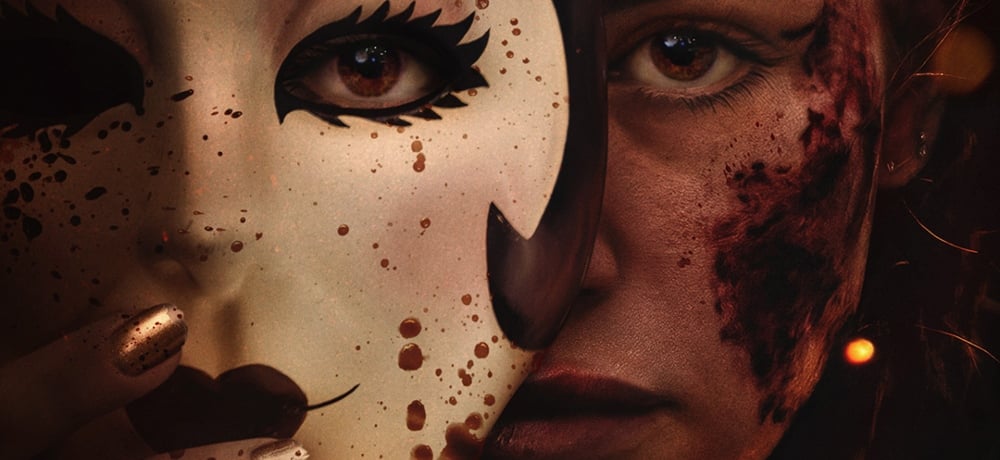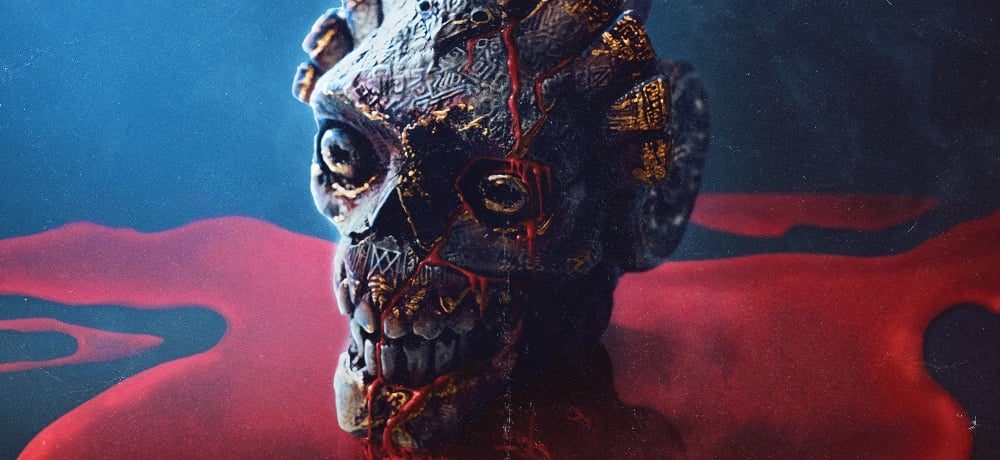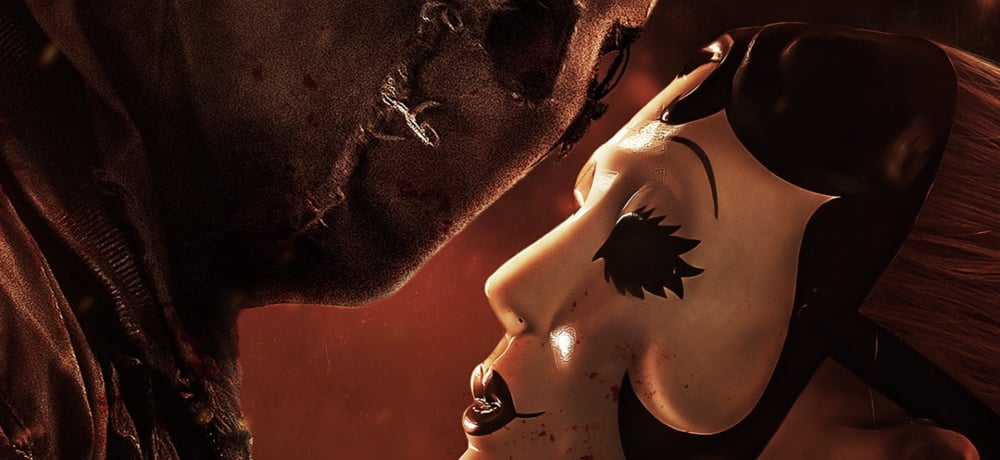





Technology is evolving at a faster rate than many companies can keep up with, but Crypt TV has been ahead of the curve on delivering compelling, bite-sized horror content that can be enjoyed from your phone. With backers that include Eli Roth and Jason Blum, Crypt TV is building a brand geared toward the future of content consumption, and I caught up with Crypt TV's CEO & founder Jack Davis to learn more about the success and future of his multi-media horror platform:
A lot of horror fans know about the Crypt TV brand, but they may not know as much about the guy who started it. When did your interest in horror movies start? Why did you want to get into this digital content creation space?
Jack Davis: The first horror movie I ever loved was Final Destination 2. I remember being either twelve or thirteen years old and then watching it on like HBO or Showtime and just loving it, and that actually got me into the entire Final Destination series. I went back and watched Final Destination, of course. Those movies ended up taking a different tone over the lifespan of the entire franchise. I loved all of them for different reasons. They're very different movies, and that gave me real respect for the genre, for the space.
I grew up in Los Angeles, California. So growing up around there changes it. You really understand the impact scary makes culturally and economically and just how important it is to the overall health of entertainment. When you look at the iconic franchises that have built up media as a whole, Frankenstein, Freddy Krueger, and Dracula are up there next to Iron Man or Mission: Impossible or what have you.
Crypt TV started with me having graduated college, having a friendship with Eli Roth, and saying, "Hey, no one's doing scary for digital." I always had a love of the space. Obviously, my co-founder Eli loved the theater more than anyone, having directed and written and been so successful in making movies in the space. But the reason I bring up that place in entertainment is that I obviously think digital's the future and I think digital's the next frontier, and when I saw that there was no scary for digital, I really understood that digital needed a vibrant genre community on it. Crypt started in the hopes to fill that need.
What I personally find very interesting about the platform is that it doesn't exploit the viewer. You can go to other sites that focus on offering free videos and they’re littered with ads. That doesn't feel very friendly towards the video creators, users, or the viewers and their experience. Crypt TV is very unique in that it focuses on the great video content first and providing a great experience for the viewer.
I'd like to understand a little bit more about your mindset and Eli’s as well, because I know that so many other investors and companies would be running to have this inside experience with ten ads and pop-ups. How did you get away from that?
Jack Davis: Well, first up, Jonathan, let me say that I appreciate the compliment. Obviously, I agree. Maybe I am a little biased, but I agree. And I would say a lot of it comes from what we're really trying to build here. We are trying to create the next generation of iconic monsters. Crypt TV wants to be Marvel for monsters. We're using the phone and social media to build characters we hope live forever.
Marvel was started on comic books, because that's where young people were back then, but Iron Man and Captain America have survived on through movies and can succeed in almost any format now. That's what we want to do. We want to create the next Freddy Krueger. Even though we're creating it on the phone or through social media, we want it to last forever, at which point I'm sure trends in how people access content will change as they have been. So, when you think about that goal, the goal to create monster stories that bring the world closer together, if you're not respecting the viewer, you're not going to build iconic characters. And if we did this like you mentioned, people would not feel that deep engagement. We're really trying to build emotional attachment to our characters.
And then as it relates to our investors and partners, we're really lucky because our investors and partners not only believe in our mission, but to your point, have tasted our mission. Could we maybe extract a little more ad revenue? Possibly. But what do we really think the value of this business is and the excitement about what we're doing creatively? It's The Birch or Giggles the Clown or Sunny Family Cult or the Look-See, or any of our best monsters, becoming iconic for the next fifty years, the next hundred years. So that's what we've decided to put first. And you can only really have fans fall in love with your monsters if you're creating an experience that's conducive to them being part of the content and enjoying the story. Obviously, I don't want to say that ads and content can't go well together, because I know some people that do it incredibly well, but we at Crypt have made the proactive decision to really make the experience of viewing our content be the story front and center, above all else.
And while we care about traffic—everybody likes traffic, the more views the better—it's not really the only measure we're optimizing for. We're trying to have people fall in love with our stories. Low-impact clicks don't do anything for us.
Switching from the investment side to the platform side, how has it been interacting with your fans and users over the growth of this platform? Because it seems like something else that Crypt has been able to do is build a dedicated following, whether it's on social media on your own channels or people posting about it or people who are creating films with you. What do you attribute to your brand loyalty? It seems as if Crypt has been able to establish that.
Jack Davis: I would say the reason that we care is because we are only showing up every day for our fans. Our monsters are all over the wall. In our office we have masks of our best characters, we have photos, we have murals. We show up every day obsessed with trying to create culture-changing monsters, and that means both growing the ones that are working as well as introducing new monsters for our fans to love.
The whole great thing about the Internet, the whole amazing thing about social media, is the feedback of your fans. We're not making this for ourselves. Yes, we love our content, but it would be crazy for us to ignore the people speaking to us in the comment sections, the way people are tuning in. In fact, we choose to grow almost entirely on how fans respond. So, the reason we care so much about developing that brand affinity, interacting with our fans—whether they're aspiring filmmakers or people who just love one of our monsters—is because we feel like the only reason we do this is for them. Their interest and proclivity for certain characters of ours actually drive our content decisions.
I find it fascinating how quickly you've grown. The timing has really worked out. Had you tried to do this five years ago, it may not have been as easy, just because horror was in a different place. And it seems like horror is so much more accessible now to people, not just in how they consume it, but also because horror's starting to lose that stigma. When you have families tuning in for The Walking Dead, and when you see Get Out and The Shape of Water nominated for Academy Awards, the stigma that was there is really eroding away. In terms of your users and followers, are you finding that they're becoming more diverse as well?
Jack Davis: I totally agree and that's partly why we say we are Marvel for monsters. The best monsters, the best genre stories, reach everybody. Get Out is an amazing film and it's successful not just because the horror audience tunes in—although they do and that's really important—it's because it's an incredible story and I completely agree that the stigma's dropping, because I think what people finally recognize, although I would say this has always been true, is that the best scary stories are just the best stories.
Fear, for me, isn't a genre. It's an emotion that every human being shares and feels. There's no one in this world who doesn't feel fear or feel scary. And what you're seeing with amazing companies like Blumhouse is that scares are an amazing way to tell deeply powerful stories, and obviously I hope Crypt is the one doing that for content online, in that same vein of "this is a great story." We just use scares as a way to bring out an emotion, but there is no negative stigma to it.
In terms of where you're going next, as I mentioned, I think Crypt is really ahead of the curve. But I'm curious about how far out now you're looking at other technologies. VR is already in play right now, what are your plans for emerging tech like that? What are your plans for VR?
Jack Davis: We have to be in emerging tech. We have to be in those spaces. But that said, Crypt wants to be Marvel for monsters in the sense that we want to create great monster stories, but they can grow and be anywhere. Social media is just the place where they start, and we need to show—not just for ourselves, but also so that we can really have that amazing fan experience—that our monsters always can live elsewhere. So, that means VR. That means AR [augmented reality]. One of our characters, Giggles the Clown, debuted an AR mask in October, and 120,000 of her fans downloaded music. We need to build affinity and love for our intellectual property in different ways. So, I completely agree that emerging tech is not just something we need to do, but is something that's absolutely essential. We've done that in AR and I would hope that in the future we do it in VR and other forms.
How important is it for you that some of these concepts, ideas, and IPs live beyond the short story or short movie format? What's your interest in getting these on the big screen as full features, especially with Jason Blum being part of this? Are those discussions you're having actively? Are you looking at theatrical releases and TV shows and things of that nature?
Jack Davis: We're looking at any way that's the best way to grow our IP. When we look at how to grow a monster of ours, it really depends on that specific property and what we think is right for it. In some cases, that's not a TV or movie. Like Giggles the Clown, she was the opening week attraction at Knott's Berry Farm. Giggles is very personable, so it fit that she should be opening live events and having her fans come out and meet her in person, which thousands did.
But for other of our monsters, certainly I think you're right. It could be TV or film. I would say we look at that on a case-by-case basis and I can't talk too much about discussions that we're having now, other than to say, yes, we're always talking about the best way to grow our monsters and we need to touch every category. We need to touch live events. We need to touch longer-form content. We need to touch more AR and VR. So, the short answer is “yes.” The long answer is that we have to be everywhere, and that's still an amazing category in which people fall in love with IP, so of course we want to be doing that.
What I love about Crypt, and it's something that we cross paths on at Daily Dead as well, is its big focus on indie horror. For young filmmakers that are looking to work with Crypt TV and may not know the best way to do it, what's the best way to reach out to Crypt and you?
Jack Davis: We care so much about young filmmakers reaching out to us. We really feel like Crypt should be the home of every young emerging filmmaker who aspires to make a genre story. They don't just have to be a genre filmmaker, they can be anyone who aspires to make a genre story, because younger filmmakers inherently understand and are excited about mobile and digital, and they understand how valuable Crypt can be to their career, because we can bring them an audience of millions.
So, we definitely want any indie, young, aspiring filmmakers, someone who's done traditional formats or who wants to play with digital more, we want them all to come to us and you can do that by either emailing submissions@crypttv.com. We look at everything. People can send us scripts. People can send us shorts.
I also encourage you to reach out. When I say "you," I mean your audience and anyone reading, to kate@crypttv.com. Kate Krantz is our Chief Content Officer. She does an amazing job and she loves when people reach out to her, because again, we are trying to be the voice and an outlet for young filmmakers. We think it's an amazing way to grow your career and tell a story. So, email kate@crypttv.com or submissions@crypttv.com. I would say email both at the same time, if you're reaching out, put one in the "To" section and one in the "CC" section and that way more people see it.
Can you talk a little bit about how some of those partnerships or submissions have worked in the past? What's one of the more successful ones, where they submitted an idea and you worked together and it became successful?
Jack Davis: There are a few examples. The overarching of what works is that you have to be excited about telling a story in a very visual manner that works in four to five minute episodes, which is what Crypt specializes in.
If you're coming to us as a filmmaker, be excited about digital. Sure, you can think that maybe movies or TV is a personal avenue for you as a director one day, and maybe you’re even interested in it as an avenue for your Crypt TV short, but come to us chiefly excited about telling a great story on digital, where most people will be consuming on their mobile phone. Be excited about that. Because I would say when we see things go well, it's when people are embracing what's narrative to digital storytelling, instead of seeing it as a necessary evil. It's not a necessary evil. You've got to be excited about that division.
We have this amazing short, One Please. You can find it on our YouTube channel and on our Facebook page. We've built equity with our fans, like we've talked about, so it just blew up on our platform. It has millions of views on Facebook, but it also has 4.4 million YouTube views, so that's one specific example.
We've had it go every way, though. We've had people submit us story ideas, we've had people submit us stuff that's finished. We've had people submit a two-minute pilot and we've said, "Listen, we don't think this works, but we can tell that you have talent, so now we're going to bring you in and rework your idea and reshoot it in a way that we know works." So, we really run the gambit with successful submissions, but I would say the one constant, the one theme, is people who are excited about digital first and foremost.
That's great. A lot of people have questions about that, and this will help set them on the right path. Now, in terms of companies and people outside of Crypt, with Crypt being so much ahead of the curve, what people or companies get you excited, whether it be in horror or just in technology?
Jack Davis: That's a great question. I'll give some non-horror examples, just because we get some great horror ones. I would say technology that gets me excited is augmented reality. I'm really excited about virtual reality. I think everybody is, so with augmented reality, it's so native to the phone. You're using your phone so often every day that using augmented reality to improve your natural experience on the phone is really cool.
For Crypt, I mentioned the Giggles the Clown AR mask example. That works so well for us and we're experimenting with more ways to do augmented reality, but we can bring Crypt monsters to your phones in a really fun, playable way. Augmented reality is really fascinating, especially because the two big platforms, Facebook and Google—with Google being YouTube, too—are really trying to implement it and build developer kits so you can build AR experiences on top of your Facebook and YouTube experience, so I'm very, very fascinated by augmented reality.
And then, I would say the broader digital space, people who are using digital to create IP. IP creates storylines—people who are passionate about creating IP on digital and mobile, instead of just looking at it as exclusively a launching pad. That's what excites me and that’s what Crypt is doing. I'm very excited about what's happening in augmented reality.
---------
To learn more about Crypt TV, visit: